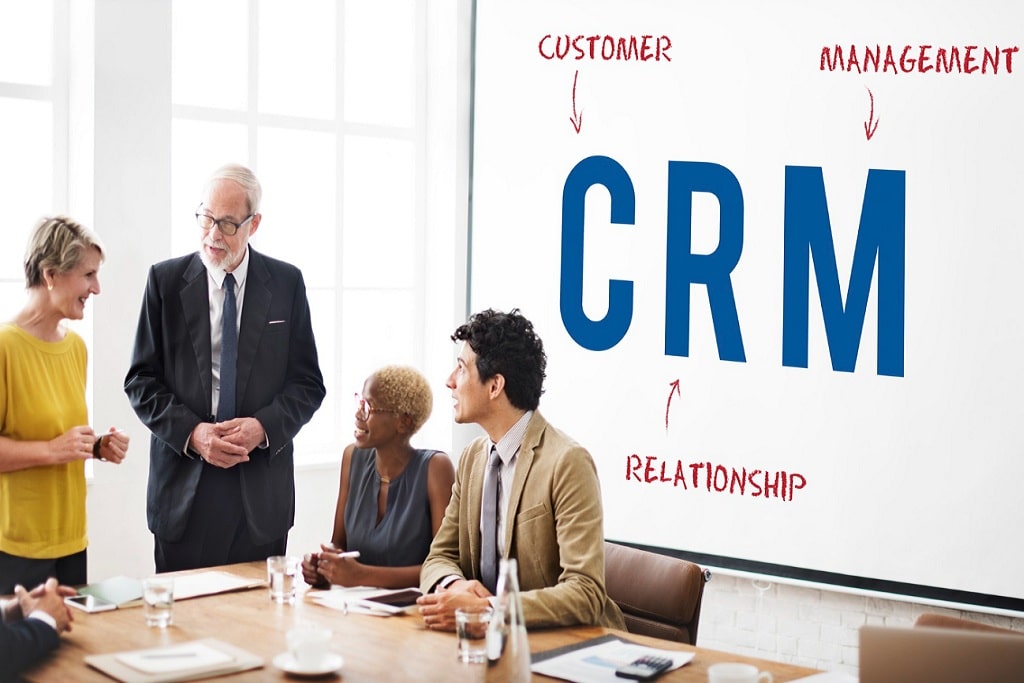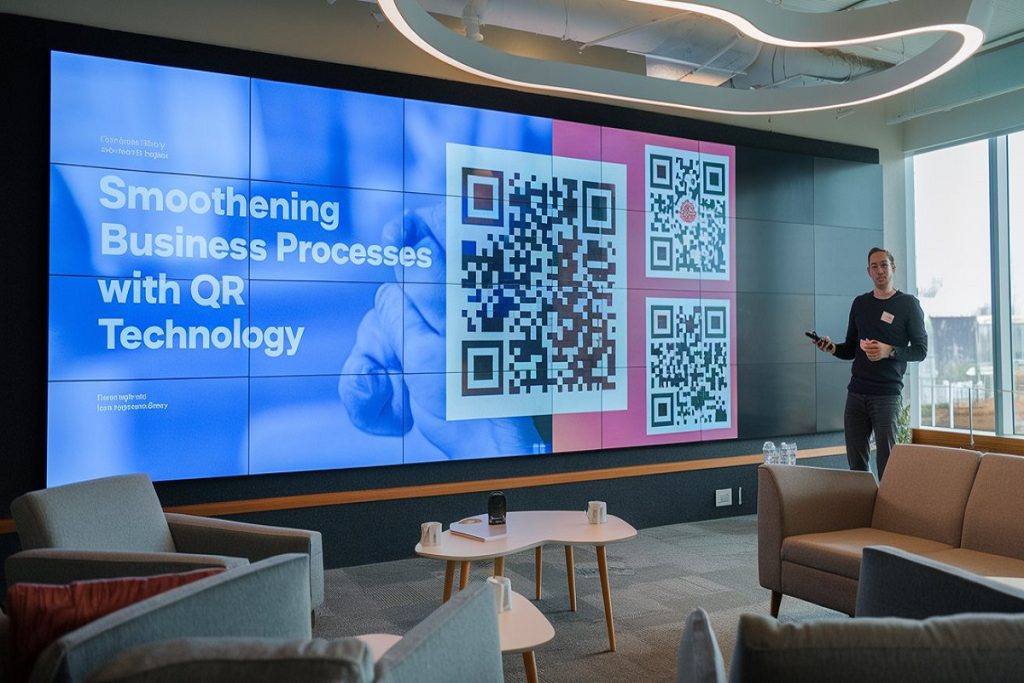B2B e-commerce platforms have gotten to be vital for businesses looking to grow their advertise nearness, streamline exchanges, and interface with worldwide providers and buyers. They offer a run of highlights custom-made to encourage everything from bulk requesting to secure installments, making them irreplaceable for companies in different businesses.
Whether you’re a startup aiming to build up a universal impression or an already extended business looking for recognition and optimizing attainment, choosing the right B2B platform is basic.
The U.S. B2B e-commerce market is expected to scope about 2 trillion USD in revenue by the end of 2024.
In this comparison, let’s have a look thoroughly at the 5 B2B e-commerce platforms like eWorldTrade, Amazon Trade, Alibaba, DHGate, and EC Plaza, analyzing their qualities and shortcomings to offer assistance to discover the best fit for your trade needs.
Here’s a point-by-point comparison of the 5 B2B e-commerce platforms for 2024, highlighting their pros and cons.
1. eWorldTrade
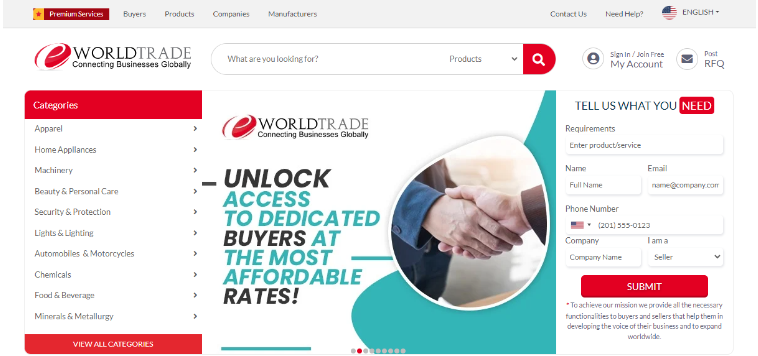
Overview:
eWorldTrade has rapidly risen as a driving B2B stage, with a center on streamlining worldwide exchange for buyers, dealers, and producers. Known for its user-friendly interface and solid back for new companies, it caters to a wide run of industries.
Pros:
- Global Reach: Interfaces businesses with confirmed providers and buyers around the world, making it a solid instrument for universal trade.
- Supplier Confirmation: Guarantees security with confirmed providers, which builds trust.
- Flexible Installment Alternatives: Offers secure installment arrangements that improve exchange security.
- Diverse Enrollment Plans: Offers different levels to suit businesses of diverse sizes.
Cons:
- Limited in A few Locales: Whereas developing, it may not have the same reach in particular markets compared to bigger competitors like Alibaba or Amazon.
2. Amazon Business
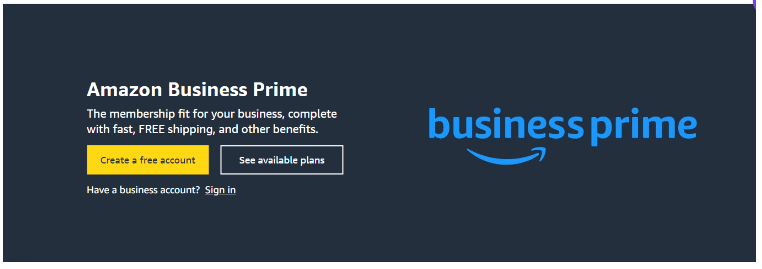
Overview:
As an expansion of the enormous Amazon biological system, Amazon Trade offers an effective stage custom-made for B2B operations, making acquisition consistent for endeavors of all sizes.
Pros:
- Seamless Client Interface: Commonplace interface as the B2C Amazon, making it simple for businesses to adopt.
- Tailored Estimating: Business-specific estimating and volume discounts.
- Advanced Devices: Offers tax-exempt acquiring, multi-user accounts, and strong analytics for following spending.
- Global Nearness: Leverages Amazon’s tremendous coordinations and cloud framework to back businesses globally.
Cons:
- High Competition: With millions of venders, standing out can be challenging for littler businesses.
- Fee Structure: Higher expenses compared to a few other B2B stages.
3. Alibaba

Overview:
Alibaba is the world’s biggest B2B stage, interfacing producers, providers, and buyers universally, especially solid in Asia.
Pros:
- Trade Affirmation: Offers a strong exchange confirmation program for secure exchanges, discounting buyers if the item quality falls short.
- Huge Provider Base: Has a enormous choice of providers from over the globe, especially from China.
- Easy Arrangements: Highlights like RFQ (Ask for Cites) permit buyers to arrange costs effectively.
Cons:
- Language Boundaries: In spite of interpretation alternatives, exploring providers in non-English-speaking districts can be difficult.
- Product Quality Inconstancy: Wide run of providers can some of the time lead to conflicting item quality.
4. DHGate
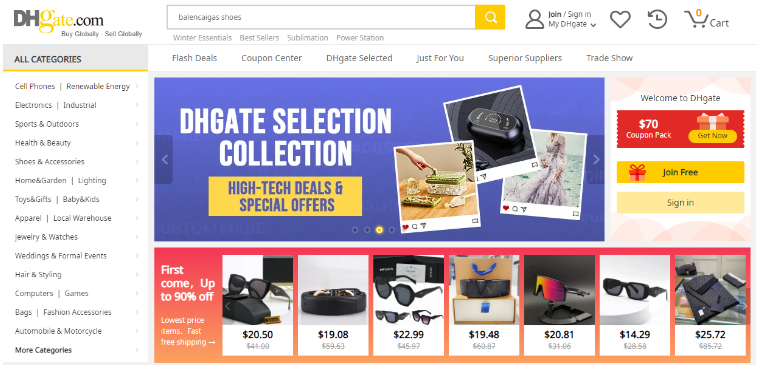
Overview:
DHGate centers on discount exchanges and is prevalent among businesses looking to source items in bulk at competitive costs, with a compact center on Chinese suppliers.
Pros:
- Bulk Rebates: Gives competitive estimating, particularly for bulk orders.
- Secure Exchanges: Highlights like escrow administrations guarantee secure payments.
- Mobile Openness: The DHGate app empowers adaptable administration for dealers and buyers on the go.
Cons:
- Quality Control Issues: Since it offers items from various little providers, the quality of merchandise can vary.
- Shipping Delays: Shipping times can be longer compared to stages with more progressed coordination arrangements.
5. EC Plaza
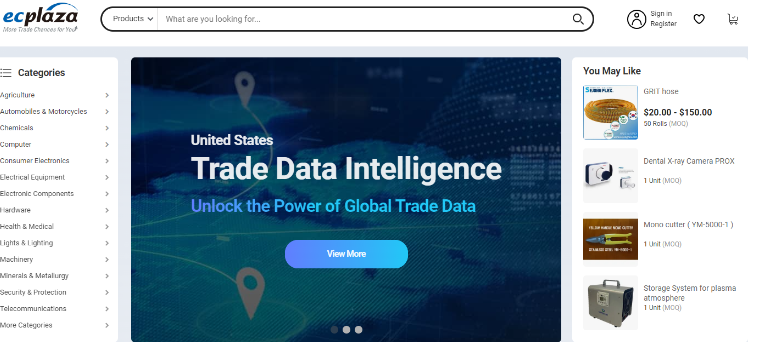
Overview:
Based in South Korea, EC Square offers a vigorous commercial center for worldwide exchanging, specializing in hardware, materials, and chemicals.
Pros:
- Cross-border Exchange Center: Robust bolster for worldwide exchange with confirmed providers and secure installment processing.
- Industry-Specific Arrangements: Well-suited for mechanical segments such as hardware and chemicals.
- User-Friendly Interface: Later upgrades to their versatile app have moved forward the client encounter for on-the-go management.
Cons:
- Niche Center: Basically, serves mechanical markets, which may not be as supportive for businesses exterior these sectors.
- Less Worldwide Nearness: Whereas prevalent in South Korea and encompassing locales, it has a littler worldwide reach compared to Alibaba or Amazon.
The Wrap up
Selecting the right B2B e-commerce platform depends on your trade estimate, industry, and particular needs. eWorldTrade stands out for its developing worldwide nearness and provider confirmation administrations, making it a solid alternative for businesses looking for secure, adaptable universal exchange.
Amazon Commerce and Alibaba are industry monsters with enormous reach and progressed platforms. DHGate is perfect for reasonable bulk sourcing, whereas EC Square exceeds expectations in specialty markets like hardware and chemicals. Each stage brings special focal points, so understanding your objectives is key to making the best choice for your B2B needs.
Related Posts:
- How to Find the Right Full-Stack Python Developer in India
- 10 Python Development ideas for revolutionizing customer service industry
- Choosing Between Python and Java: What Developers Need to Know
- Top 10 Key Points to Evaluate Python Development Companies In India
- Hire Certified Python Developers in India for Business Automation

